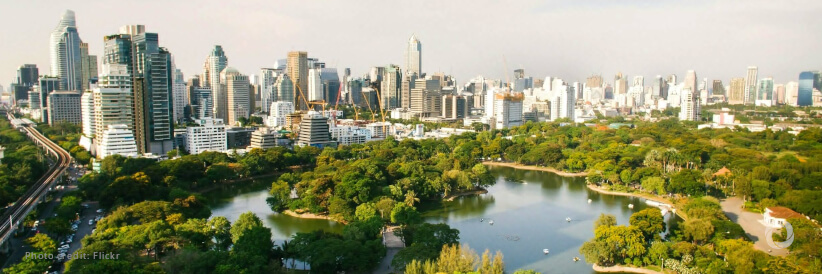Cities took center stage at COP29 in Baku, as global leaders recognized urban areas as both contributors to and solutions for the climate crisis. With over half of the world’s population living in cities – projected to rise to 70 per cent by 2050 – and urban areas responsible for around 70 per cent of CO2 emissions, the message was clear: cities play a critical role in addressing climate change.
The Ministerial Meetings on Urbanization and Climate Change, which included four high-level roundtables, brought together over 50 ministers, local officials, parliamentarians, and representatives from multilateral development banks and UN agencies. Discussions focused on bridging national and local efforts to create resilient and sustainable cities, with more than 1,000 participants contributing to the critical conversations, highlighting the importance of coordinated, multisectoral action to tackle climate challenges at every level.
The World Cities Report 2024: Cities and Climate Action stood out as a key resource at COP29, providing practical guidance to help policymakers sharpen their urban climate strategies. Over 50 events showcased expert discussions, hands-on workshops, and shared resources including the World Cities Report, offering city leaders the tools and knowledge needed to strengthen climate resilience and take impactful action.
Building momentum through partnerships
The need for collaboration was a recurring theme in Baku. A standout moment was the unveiling of the Declaration on Multisectoral Actions Pathways (MAP) to Resilient and Healthy Cities by the COP29 Presidency, supported by UN-Habitat. The declaration calls for a united effort across governments, businesses, and civil society to align urban resilience strategies. By emphasizing multisectoral action, the MAP Declaration provides a framework to drive forward sustainable urban development.
Urban climate solutions were further integrated into the global agenda through efforts to strengthen Nationally Determined Contributions (NDCs). A side event co-organized by multiple UN agencies demonstrated how urban priorities could help achieve the Paris Agreement goals. Meanwhile, an interactive workshop at the Multilevel Action and Urbanization Pavilion offered practical tools for cities to take bolder climate action.
Financial backing also gained momentum, with the Slovak Republic pledging EUR 5 million to the Sustainable Urban Resilience for the Next Generation (SURGe) initiative. This funding aims to scale up urban resilience over the next five years, fostering stronger connections between local, national, and global climate efforts.
Securing the future of urban climate action
To ensure that cities remain central to future climate talks, the Baku Continuity Coalition was launched in collaboration with the COP27-30 Presidencies. This initiative aims to sustain the focus on urban issues in global climate negotiations, safeguarding the progress made and ensuring cities remain equipped to face climate challenges.
As COP29 concluded, one thing was evident: cities are no longer sidelined in climate discussions – they are leading the way. By fostering partnerships, sharing knowledge, and mobilizing resources, this year’s conference set the stage for urban areas to drive meaningful climate action, paving the path toward a more sustainable future for all.

